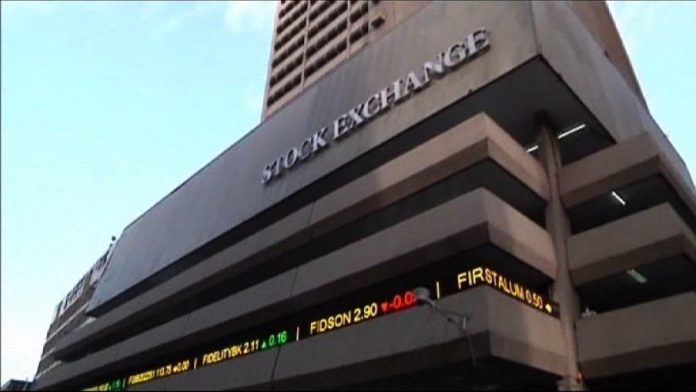Investors’ investment in the 10 most capitalised stocks on the Nigerian Stock Exchange (NSE) have declined N2.421 trillion to global oil price crash and increasing spread of coronavirus (COVID-19) in six weeks.
The 10 most capitalised companies on NSE as at February 3, 2020 are Dangote Cement, MTN Nigeria, BUA Cement, Airtel Africa, Nestlé Nigeria, Guaranty Trust Bank, Nigerian Breweries, Stanbic IBTC Holdings, Zenith Bank and SEPLAT Petroleum Development Company (SEPLAT).
They have a total market capitalisation of N11.705 trillion, representing 78.78 per cent of total market capitalisation. As at March 13, 2020, the total capitalisation of the 10 companies depreciated by N2.421 trillion to close at N9.284 trillion.
Looking at each stocks, Nestle Nigeria declined by N654 billion , MTN Nigeria’s share price declined by N537 billion, Dangote Cement being the most capitalised company on NSE lost N459 billion during this period while BUA Cement shed N58 billion.
Airtel Africa lost N48 billion while Guaranty Trust Bank shed N323.746 billion. Investors in Nigerian Breweries, Stanbic IBTC Holdings, Zenith Bank and SEPLAT lost investments worth N215.914 billion, N94.015 billion, N281.007 billion and N35.601 billion, respectively in those companies.
Also, during this period, the equities market declined by 21.18 per cent as the All-Share Index dropped from 28,843.53 on January 31, 2020 to 22,733.35 on March 13, 2020.
Similarly, the market capitalisation declined by N3.01 trillion to N11.847 trillion on March 13, 2020 from N14.857 trillion to commence trading on February 3, 2020. This is as a result of the persistent free-fall in equity prices owing to a bouquet of factors.
The ravaging coronavirus a global pandemic has further propelled the panic selloffs in the local and international markets. Coronavirus disease which started in Wuhan, China has spread to more than 118 countries resulting in over 134,911 cases and 4,613 deaths, driving record sell-offs in global and domestic markets.
In Nigeria, there were two cases of COVID-19 and as at March 13, 2020, the reported cases are now negative. While the domestic incidence of COVID-19 has been moderate, the domestic equities market is reeling from a global contagion that has wiped off initial 10.7 per cent gains achieved in the month of January and caused a slump of 21.18 per cent loss from February 3rd to March 13, 2020 and 15.36 year-to-date loss as at March 13, 2020.
Capital market analysts noted that this is the worst start to a year since 2016, and the reaction of investors reflects concerns about Nigeria’s vulnerability to external shocks, mainly oil, saying that the slowdown in global oil demand, in addition to the decision of OPEC+ to abandon output cuts, has caused a 50.2 per cent year-to-date drop in oil prices to $32.9/bbl as at March 12, 2020, the lowest in over four years.
Speaking the chief operating officer of InvestData Consulting Limited, Ambrose Omordion said that the impact of the virus seems heavy, killing more stock markets and economy than people across the globe, sending panic waves around the world, more devastating than the financial meltdown of 2008.
The chairman of Association of Securities Dealing Houses of Nigeria (ASHON), Chief Oyinyechukwu Ezeagu assured the investing public that the market would soon bounce back.
Although, ASHON acknowledged the high level of down swing on the market in the last couple of days, he said that fundamentals of the quoted companies remain strong.
He explained that Nigeria’s stock market remained part of the global exchanges and as such any development in the global market would impact on its operations. “The effect of the coronavirus is gradually affecting trading all over the world and whatever happens elsewhere reflects in our market.
“The centre of it all is China and being a major world power both in productive and consumption capacities, any ill wind affecting China would naturally cause a big sneezing to the rest of world. Investors should not panic. The share prices will bounce back. The companies’ fundamentals remain strong. Many investors are taking advantage of the bearish run to beef up their portfolios,” said Ezeagu.
Cowry Asset Management Limited in their report on ‘COVID-19: Implications of the Global Pandemic on Nigeria’s Economy’ said “Amid hysteria in the financial markets, share prices plunged in almost all stock exchanges in the world in an unexpected manner.
“Not insulated, share prices in the NSE crashed to rock bottom. Even stocks which obviously have good fundamentals like Zenith Bank and Guaranty Trust Bank lost significant value amid investor fears that the expected plunge in foreign earnings of the federal government would lead to devaluation of Naira against dollar and, in turn, affect the banks’ earnings going forward.”
On investment strategy the report stated that it is needful for investors to firm up strategies in order to guard against possible investment loss, should CBN devalue on account of worsening external sector conditions, saying that this has become imperative in the Nigerian financial markets in light of the several headwinds facing the economy.
“We recommend that investors take long positions in stocks which have depreciated to rock-bottom values. Specifically, investors should bargain hunt cash cows and high dividend-yielding stocks as the plunge in prices has accentuated their potential yields,” it stated.
Analysts at Afrinvest Limited stated that “We see opportunities in the local bourse for medium to long-term investors. With a loss of 15.4 per cent YTD, market valuation is currently weak.
“Given the effectiveness of social distancing measures to fighting the spread of COVID-19 and its wide adoption in countries most vulnerable to the virus, we could see a resumption of economic activities in second half of 2020 which would support crude oil prices and market performance.”
They advised a gradual entry approach buying in tranches into the Nigerian equities market given the uncertainties both on the global and domestic fronts.


